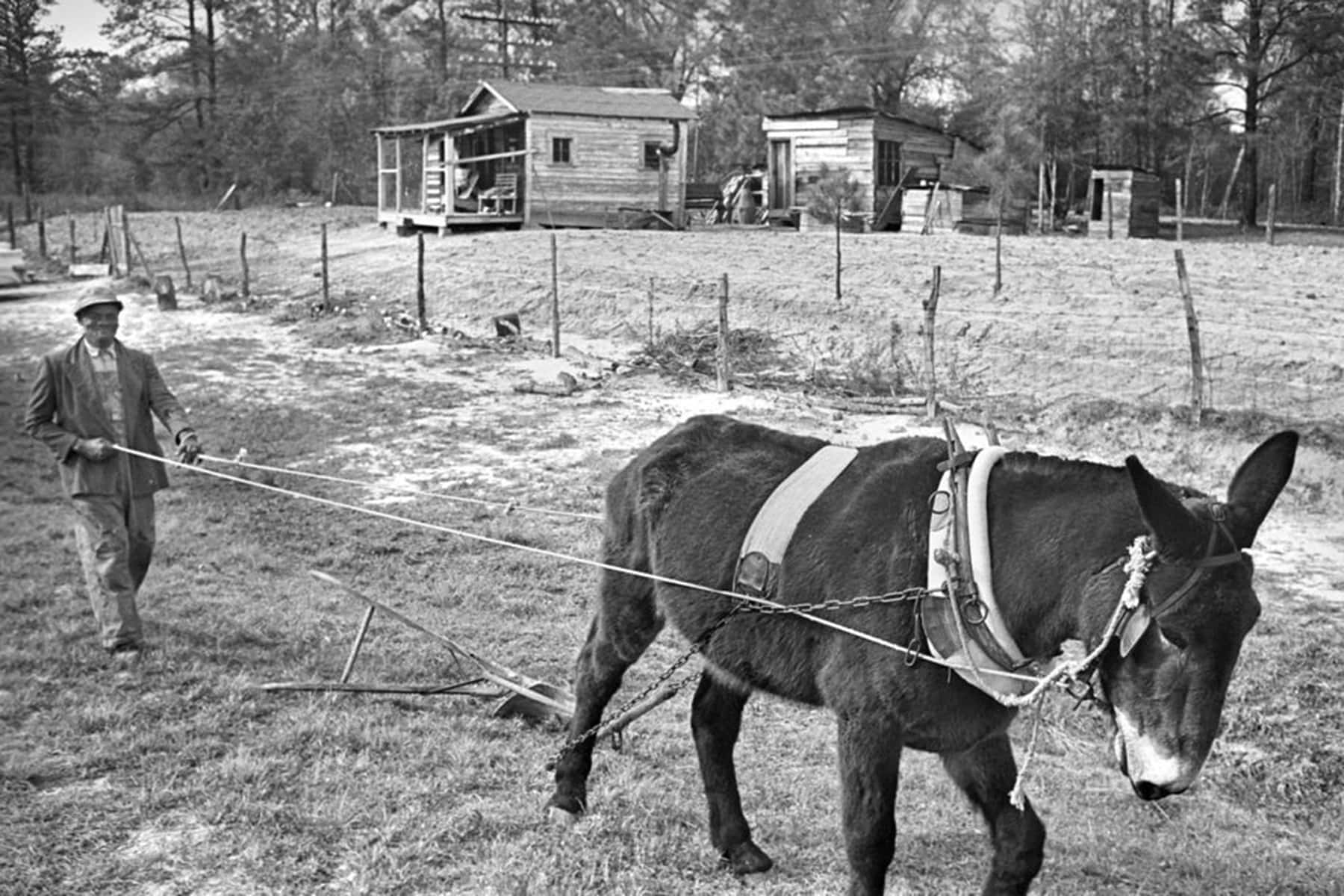
“At long last, let America contemplate the scope of its enduring human-rights wrong against a whole people. Let the vision of blacks not become so blighted from a sunless eternity that we fail to see the staggering breadth of America’s crime against us. Solutions must be tailored to the scope of the crime in a way that would make the victim whole. In this case, the psychic and economic injury is enormous, multidimensional and long-running. Thus must be America’s restitution to blacks for the damage done.” – Randal Robinson, “The Debt: What America Owes to Blacks” (2000)
“As a working hypothesis I am prepared to accept the theory that statutes, ordinances, and other official actions have been the predominant source of the racial discrimination that has blighted our public and private life… justification for publicly financed reparations to the victims of discrimination, even though some of the damage may stem from ‘private’ behavior that might have occurred in the absence of official encouragement or even in violation of official prohibitions.” – Boris Bittker, “The Case for Black Reparations” (1973)
In the days, weeks and months since a sworn police officer sat on top of George Floyd with his knee cutting off his ability to breathe for nearly nine minutes, killing him, America has been in what appears to be a “racial reckoning.” It took Floyd’s death, the killing of Breonna Taylor by police officers and the murder of Ahmaud Arbery to wake America up in a way never really seen before. Decades of massive anti-black violence has never made Americans concerned enough to do something about it.
This, so far short-term awakening, and the subsequent multi-racial protests which followed was much more widespread than anything seen during the glorious, celebrated Civil Rights Movement. The protests have lasted for months across the country in Minneapolis, Chicago, Milwaukee, Detroit, Atlanta, Baltimore, Los Angeles, Miami and a multitude of places unheard of in the past civil rights movement—places like Salt Lake City, Portland, and small town America. Whites, Hispanics, Asians and Native American people joined Blacks in a way they had never done before. The protests spread to multiple communities in the U.S. and eventually led to similar worldwide protests in places where I’m sure the average person could not find Minneapolis on a map if you offered them a million dollars.
People claimed that America was finally “woke.” Anyone who had been in a position to make t-shirts, signs, hats etc. with the slogan Black Lives Matter on them, made out like fat cats. “Community leaders” came out of the woodwork around the country. There were calls for defunding the police, reforming the police, retraining the police and a dozen other things that appeared to be solutions to the racial quagmire that often manifests itself in police violence against Black people in America.
Eventually the fervor wore off for many outside the Black community. The air left the balloons and all that was left was “hot air” coming out of the mouths of talking heads, academics and newly promoted “leaders” in the Black community around the country. Americans mostly crawled back into the bed after being woke for a short time as I predicted last year in the heat of the protests.
Eventually you began to hear talk of the “R” word, reparations. I have read dozens of articles about reparations over the past nine months since it became a part of the narrative about systemic racism in this country. There are many who promote the idea of reparations for Black people, and an equal number who decry it. In some communities talk of reparations is the equivalent of a four-letter word. In other places it is seen as a panacea. The way politicians have spoken about reparations for the first time in open forums is different. Even a short few years ago, this would have been unheard of.
Rarely do people who write and speak about reparations give you a clear definition of what it is, the long history of requests for reparations, or examples from here and abroad in such detail that it makes sense to the masses.
Back in 2014 the brilliant, writer and social critic Ta-Nehisi Coates wrote, The Case for Reparations in The Atlantic. It was named the “Top Work of Journalism of the Decade” by a panel of judges convened by NYU’s Carter Journalism Institute. “When I wrote ‘The Case for Reparations,’ my notion wasn’t that you could actually get reparations passed, even in my lifetime” Coates told The New Yorker magazine in 2019.
It is indeed a beautifully written article. He uses history to shine a light on what America has done that justifies reparations. Coates weaves in the stories of ordinary Americans, with a brilliant analysis of how housing discrimination in particular has stunted any chance for Blacks to live the American dream. He talks about slavery, reparations for the victims of the Nazi Holocaust and the theft of opportunity that has been a hallmark of America since it was founded.
“But while the people advocating reparations have changed over time, the response from the country has remained virtually the same… having been enslaved for 250 years, black people were not left to their own devices. They were terrorized. In the Deep South, a second slavery ruled. In the North, legislatures, mayors, civic associations, banks, and citizens all colluded to pin black people into ghettos, where they were overcrowded, overcharged, and undereducated. Businesses discriminated against them, awarding them the worst jobs and the worst wages. Police brutalized them in the streets. And the notion that black lives, black bodies, and black wealth were rightful targets remained deeply rooted in the broader society. Now we have half-stepped away from our long centuries of despoilment, promising, ‘Never again.’ But still we are haunted.”
For those recently “woke” folk, Coates’ article is an awakening. What they miss, unless they actually read the whole article, is that the conversation and demand for reparations is nearly as old as America is. These calls have been coming out of the mouths of Black people for centuries. I won’t go into that because you can read his article for that history. Instead I want to do something he did not do in his article.
I will define reparations; tell you why it is not just justifiable but necessary if America is to live up to its’ stated position as a worldwide moral leader. I will also tell you what it looks like and show multiple examples of how it has been done throughout history, here and abroad.
Let’s begin with the word reparations. It is defined in the dictionary as “monetary or other compensation payable by a country to an individual for a historical wrong.” According to the Online Etymology Dictionary, the word comes from: the late 14th century “reconciliation,” from Old French reparacion and directly from Late Latin reparationem, “act of repairing, restoration,” noun of action from past participle stem of Latin reparare “restore, repair.” The root of this word is “repair.”
How can we reconcile the word repair with what Randall Robinson calls “the great still-unfolding massive crime of official and unofficial America against Africa, African slaves, and their descendants in America” without being honest about the nation’s history?
There is a great deal of conversation about repair and reconciliation going on across the country now. You can’t honestly begin the process of repair without first acknowledging the harm done. America has done a tremendous job of keeping this history hidden in plain sight. It’s not in our history books but thousands of books have been written about America’s unique blend of African captivity, anti-black violence in the form of lynchings and race riots as well as copious amounts of scholarship about the horrors of police violence against blacks, theft of black labor and land, and decades of systematic disenfranchisement, legally sanctioned forced residential segregation, disinvestment in Black communities, and stolen educational opportunities.
The evidence is clear, but people who should know better, still try to argue that things weren’t and still aren’t that bad for Black people in America. Some of these are Black people who want us to believe that something is inherently wrong with Black people and that we are all playing the role of victim instead standing up for so-called “personal responsibility.” That type of thinking, permeates the conservative think tanks and the lecture circuit they’ve created that fosters what are called “honest” conversations about race. They like to claim that they provide balance to the conversations. I think they are intentionally designed to muddy the waters and deny the lived experiences of people of color, particularly Black people. They will continue to push this narrative as long as the checks are being written for them to create “scholarship” on this topic. This should not comes as a surprise. These are the same types of people who told “Massa” about planned escapes and revolts by Africans enslaved in this country.
To even argue that reparations is not due is dishonest and incredibly disingenuous. Historians, sociologists and social critics have argued that reparations is a scam and a handout when they are talking about reparations to Black people. No such arguments were made when Italians received reparations after the lynching of a group of Italian men in New Orleans over a century ago. No such arguments were heard when discussing the reparations given to Japanese Americans, who were forced into internment camps during WWII.
Why then are there such strong arguments against reparations for Black people? The answer is both simple and complicated. The simple part is that we are Black and America has never treated us like everybody else. So why do we expect this to happen now? Secondly to get to reparations requires a near complete re-telling of the American story. This is the part that makes it so hard.
Historians who are supposed to be objective in telling us the history of this country, have mostly chosen for a majority of American history to stick with the dishonest lie that America has always been the “land of the free, and the home of the brave.” It is shameful that a nation with over 600,000 Africans in shackles when the Constitution was drawn up, can’t admit the truth of the lived experience of those Africans and their progeny.
Those Africans were not free. The people who enslaved them were certainly not brave in the eyes of those they held in captivity. The American Myth is an American Lie, regardless of how often people try to tell us otherwise. I refuse to dishonor my ancestors by accepting and perpetuating this lie.
People are still making the ridiculous arguments that “slavery wasn’t that bad,” “they were singing in the fields.” If had a dollar for every time I’ve heard or read a White person say, “my family never owned any slaves,” I’d be wealthy.
Let’s make one thing perfectly clear. Reparations is not about you and what your family may or may not have done. It’s about what America collectively has and continues to do! Even if you feel you’ve never benefited from racism as a White person, it has nothing to do with reparations. Racism in its’ vilest form is systemic.
Individual acts of bigotry are important, but pail in comparison to structures like our health care system, education system, and so-called justice system which are all infected with racism. The institutions like the thousands of county jails, local hospitals, and places of employment are all part of the institutional racism so prevalent in our society. It does not matter who the people in those institutions have been over time, the results have almost always been the same.
The widespread racial disparities in America cannot be hidden by blaming a so-called “culture of poverty,” absentee fathers, sagging pants and Hip-Hop music.
We were denied the opportunity to be fathers when Whites came and kidnapped Africans, broke families up constantly, and then denied us access to economic opportunities on a level playing field since slavery ended. There is a rule that plays out consistently in America; the Black unemployment rate is nearly always at least twice the White rate. This is not some historical accident. It’s baked into the American way of doing business. Black men have been marginalized as fathers and then blamed for their marginalization. The broken communities you see were created by Americans intent on insuring that the Black community would never be a viable competitor to the White community.
As we imprisoned poor Black men when the economy collapsed back in the 1980s we ignored the impact on their families. How can you be a father when your chances of finding a good job are so difficult? This is not an excuse, it’s the reality of the lives of untold numbers of Black men. America stole opportunities from these men and then blamed them for their condition. It was decades later when some—actually just a few—of the elected officials responsible for the system we call mass incarceration apologized for their “tough-on-crime” policies and laws that made the U.S. prison and jail population increase by over 500 percent in a few decades.
Black people were criticized as lazy, when we were building the White House, U.S. Capitol and the economy which made the United States a world power. Black men were accused of being sexual predators when they were forced to watch White men and teenage boys rape their daughters, girlfriends, wives, mothers, and grandmothers.
When we were not allowed to join American unions, which were fighting for better wages and benefits, it was only because those unions wanted to protect “white mens’ jobs.” We were forced to do the best with the leftover, backbreaking menial jobs left for us.
When the American economy kept us at the bottom of the heap, cementing a place in abject poverty for generations of Black people, we supposedly had a “culture of poverty.” We don’t have anything resembling a real Black culture in America. We have bits and pieces of what we’ve managed to build in a land that has never been the land of opportunity for the masses of Black people. The fact that a handful of us have gotten a “piece of the pie” does not excuse the fact that far too many of us are not even consistently invited to sit at the table. The lyrics to the theme song of the 1970s sitcom The Jeffersons tells us a lot about what America is supposed to be for those of us born in the ghettos and barrios of America.
Well we’re movin’ on up (movin on up)
To the east side (movin on up)
To a deluxe apartment in the sky.
Movin’ on up (movin on up)
To the east side (movin on up)
We finally got a piece of the pie.
Fish don’t fry in the kitchen;
Beans don’t burn on the grill.
Took a whole lotta tryin’
Just to get up that hill.
Now we’re up in the big leagues
Gettin’ our turn at bat.
We were poor and downtrodden before sagging pants became all the rage, and rap and Hip-Hop became popular forms of music. Back in the day, the same negative things we hear about these forms of music, were said about jazz music created by Black musicians.
If we continue to be assaulted by and have people believe these lies about us, a lot of people will continue to argue that reparations are not due to Blacks in America. I have heard people—even within our community—say reparations will be wasted by us buying Cadillacs and jewelry. First of all, this is a racialized trope. Secondly, nobody is mad at White people who buy Cadillacs and jewelry. This double standard is always the norm in a racist America.
Let’s look at what reparations have looked like over the years by beginning with the argument about how Japanese internees received reparations for three years of interment and Black people can’t receive reparations for centuries of ill treatment.
Rhoda E. Howard-Hassmann, Professor Emeritus, Department of Political Science, Wilfrid Laurier University wrote an interesting article about this topic. She argues that Blacks deserve reparations but that the comparison of the two groups’ circumstances are so different that the argument is in many ways a moot point. She wrote:
“It is much easier to obtain reparations under the following conditions:
The number of victims is relatively small.
The victims are easily identifiable.
Many of the direct victims are still alive.
The injustice took place during a relatively short time period.
The perpetrator is known.
The injustice is easily identifiable.
The injustice offends values of equality, personal safety and/or the right to own property.
There is a symbolic victim around whom advocates for reparations can rally.
The amount of reparations asked for is not so large that the public will find it unreasonable.”
There were 120,000 or so Japanese Americans—70 percent of them U.S. citizens— interned for three horrific years, losing all their worldly possessions along the way. These internees lost about $400 million in property during their incarceration in these “camps” that were called “relocation centers” by the federal government. Congress provided $38 million in reparations for these losses in 1948.
By the time Congress acted again in 1988, 40,000 of the victims of internment had died. Two years later, $20,000 in reparations per person started to be paid to the victims. This amounted to just $1.6 billion paid by the U.S. government. Nearly 2,000 of the internees died waiting, from 1988 when the reparations were agreed upon by Congress, until the first checks were finally given in 1990. It was not until 1993 before the final payments were given.
“If we were put there for our protection, why were the guns at the guard towers pointed inward, instead of outward?” – Japanese internee
After eleven Italians immigrants were lynched in New Orleans in 1891, the U.S. government, under pressure from the Italian government, gave $25,000 in reparations to the families of the victims. The families of thousands of Black lynching victims received not a penny in reparations.
Three things tie the Japanese and Italian reparations together. Number one, the victims were not Black. That really matters in the larger scheme of things. Secondly, a foreign nation put pressure on the U.S. government to pay reparations. Lastly, there was an apology issued by U.S. government officials for the actions which lead to the reparations being paid.
This last point is critical. Apologies by the U.S. government have never been issued for slavery or lynching among the multitude of other injustices Black people have been the the victims of in this country. Not a single European nation or the United States has apologized for creating and maintaining the transatlantic slave trade for over three centuries. The U.S. Senate, in an otherwise empty chamber in 2005, offered an apology not for lynching, but for never passing an anti-lynching bill.
My mentor Dr. James Cameron, founder of America’s Black Holocaust Museum, and survivor of a vicious 1930 lynching in Marion, Indiana, was in the Senate chambers and told me it was a farce because only a small handful of Senators were actually there, despite the appearance in media coverage that the entire Senate was in session when the apology was issued formally on June 13, 2005.
“The apology is a good idea, but it still won’t bring anyone back. I hope that the next time it won’t take so long to admit to our mistakes.” – Dr. James Cameron
When it comes to support of reparations for Blacks in America, the racial divide is clear. According to a poll by the Associated Press in October 2019, 74 percent of African Americans favored reparation payments, while 85 percent of Whites opposed them. In fact, only 29 percent of Americans believed at that time, that reparations should be paid to Black people. Shortly after George Floyd was killed, a Reuters/Ipsos poll showed just twenty percent of Americans supported “taxpayer money to pay damages to descendants of enslaved people” in the United States.
During the 2020 presidential campaign, then candidate Joe Biden, signaled support for a “reparations committee” but has not said a word about specific legislation on the issue since he took office.
This proposed commission is a farce in many ways. It “does not mandate financial payments of any kind,” according to House Judiciary Committee Chairman Jerrold Nadler. He argued that, “In fact, most serious reparations models that have been proposed to date have focused on reparative community-based programs of employment, healthcare housing and educational initiatives, righting wrongs that cannot be fixed with checks alone.”
This is a continuation of policies that have lead to no real changes in the past as Dr. King spoke about at the March on Washington For Jobs and Freedom.
“This is no time to engage in the luxury of cooling off or to take the tranquilizing drug of gradualism. Now is the time to make real the promises of democracy. Now is the time to rise from the dark and desolate valley of segregation to the sunlit path of racial justice.” – Rev. Dr. Martin Luther King Jr. I Have a Dream Speech, (August 1963)
Reparations so far, is all talk and no action on the federal level. The federal government is where other forms of reparation came from. The federal government has paid reparations before, not municipalities like Evanston, Illinois which has supposedly become the first to issue reparations.
They should be applauded for what they’ve done in Evanston, but their efforts are like celebrating the finding of a single grain of sand on the beaches of California. People are bending over backwards to talk about what Evanston has done because they are so desperate to find some good news in the effort to get reparations.
The federal government is responsible for reparations. If it does not come from them it’s just a facade. There are less than 75,000 people who live in Evanston. There are 330 million Americans. To say one city is leading the way is really a joke. I’m not saying that they are doing the wrong thing. Instead, I’m saying Evanston can not pressure the U.S. Congress to pass reparations.
No one would ask for or celebrate a small town in Germany to pay reparations to the Jewish victims of the Nazi Holocaust. The nation of West Germany agreed to pay reparations in 1952. According to the American Jewish Historical Society:
“a total of $845 million: $100 million earmarked for allocation by the Claims Conference and the remainder to Israel. Direct compensation would be paid in annual installments over a period of 14 years (between April 1, 1953, and March 31, 1966). The money to Israel was split – 30 percent was to pay for Israel’s crude oil purchases in the United Kingdom and with the balance of 70 percent Israel was to buy ferrous and nonferrous metals, steel, chemical, industrial, and agricultural products from Germany… In 1988, the German government allocated another $125 million for reparations, enabling remaining Holocaust survivors to receive monthly payments of $290 for the rest of their lives. In February 1990, before its unification with West Germany, East Germany admitted for the first time that it was also responsible for war crimes committed by the German people during World War II and agreed to pay reparations… Slave and forced laborers still alive at the time of the settlement could apply to receive a lump sum payment of between $2,500 and $7,500 from the foundation; in all, over 140,000 Jewish survivors from more than 25 countries received payments. Final payments from the Foundation were to be made by September 2006… The German government and the Conference on Jewish Material Claims Against Germany announced an increase in funding for social welfare services for Holocaust survivors by $88 million on July 10, 2018. This funding increase will allow survivors to receive more frequent and better quality home care, food support, transportation and medical services. This allocation makes Germany’s 2019 total pledge to the Claims Conference $564 million.”
One of the factors that led to the rise of Hitler was the huge reparations Germany was forced to pay after WWI. The Allies forced Germany to pay reparations to the nations it attacked in the war. When the Treaty of Versailles ended the “war to end all wars” as some called it, the treaty demanded that Germany would pay 269 billion gold marks, the equivalent of 100,000 tons of gold in reparations. One of the most burdensome clauses in the treaty was article 231, the so-called “guilt clause” where Germany was forced to take responsibility for the war. “These reparations were as important politically as economically,” says Mark Harrison, an economics professor at University of Warwick.”It was what it [the reparations] stood for. The Germans hated it,” he told the BBC in 2010.
Shortly before the 1929 stock market crash, several nations tried to ease the burden on Germany by lowering the reparations to 112 billion gold marks and offering loans to help them pay off the debt. The 1932 Lausanne Conference held in Switzerland by leaders from the UK, Germany and France tried to write off most of the debt. When their solution was presented to Americas’ leaders the measure failed in the U.S. Congress. American statesmen roundly condemned and rejected the dissolution of the German debt. A year after Hitler came to power, Germany had only paid about one-eighth of the reparations and basically stopped paying under Hitler’s leadership.
After WWII, Germany was split into two nations, East Germany and West Germany. No one could decide who was responsible for picking up the reparations debt from WWI. In 1953 the London Treaty — agreed to suspend most payments until Germany was unified. This unification did not happen until 1990. Germany did not finish paying off the last loans associated with these reparations until October 2010.
One of the arguments against reparations for Blacks by many White people is the old “my family never owned any slaves” trope. My answer to this is simple. Did any of your ancestors intern the Japanese? Did any of your family lynch the 11 Italian men in New Orleans? The answer is, for almost all Americans, a resounding no. However, did that stop your government from paying those reparations? Once again the resounding answer is no!
I’ve said many times before to people who make these arguments, it’s not about you! Reparations come from governments, not the masses. Either you or your ancestors paid taxes that went to pay the reparations in both of the aforementioned cases whether you wanted them to or not. It did not matter if you agreed with these reparations or not, they were still paid.
As president, Abraham Lincoln was asked to pay reparations to slaveholders in Missouri, Kentucky, Maryland and Delaware if he was to free their enslaved Blacks with the Emancipation Proclamation. He did not free them. He simply left them out of the Emancipation all together. Read the Emancipation Proclamation instead reading about it. You’ll see for yourself that it did not “free all of the slaves” as you were taught in school. Those four states, known as the Border States, did not end slavery until after ratification of the 13th Amendment on December 18, 1865, eight months after the Civil War ended. These slaving states did not join the Confederacy and wanted—even demanded—that they be allowed to keep enslaving hundreds of thousands of Black people while the war was being raged around them.
One organization that most Americans have never heard of that has worked for reparations for years is The National Coalition of Blacks for Reparations in America (N’COBRA). They have an active chapter in Milwaukee. Sister Jeanette Herrera of the Milwaukee chapter is the most active advocate for reparations that I know in the city. N’COBRA was founded in 1987 “for the purpose of broadening the base of support for the long-standing reparations movement” according to their website. This is how they describe reparations and the argument they make for it:
“Reparations is a process of repairing, healing and restoring a people injured because of their group identity and in violation of their fundamental human rights by governments, corporations, institutions and families. Those groups that have been injured have the right to obtain from the government, corporation, institution or family responsible for the injuries that which they need to repair and heal themselves. In addition to being a demand for justice, it is a principle of international human rights law… Reparations can be in as many forms as necessary to equitably (fairly) address the many forms of injury caused by chattel slavery and its continuing vestiges. The material forms of reparations include cash payments, land, economic development, and repatriation resources particularly to those who are descendants of enslaved Africans. Other forms of reparations for Black people of African descent include funds for scholarships and community development; creation of multi-media depictions of the history of Black people of African descent and textbooks for educational institutions that tell the story from the African descendants’ perspective; development of historical monuments and museums; the return of artifacts and art to appropriate people or institutions; exoneration of political prisoners; and, the elimination of laws and practices that maintain dual systems in the major areas of life including the punishment system, health, education and the financial/economic system. The forms of reparations received should improve the lives of African descendants in the United States for future generations to come; foster economic, social and political parity; and allow for full rights of self-determination. Within the broadest definition, all Black people of African descent in the United States should receive reparations in the form of changes in or elimination of laws and practices that allow them to be treated differently and less well than White people.”
As you can see from this information, they are not asking for a handout or just some checks. They are smart enough to understand that giving checks is only a small piece of what is due. You can’t repair 400 years of the type of damage done with checks. They also hold multiple entities responsible for making these reparations happen.
Back in April 1993, under the leadership of the Organization of African Unity, a conference was held in Abuja, Nigeria. Attendees came from thirty countries and four continents, demanding reparations for African people on the continent as well as in the diaspora. This is part of the The Abuja Proclamation: A declaration of the first Abuja Pan-African Conference on Reparations For African Enslavement, Colonization And Neo-Colonization.
“Emphatically convinced that what matters is not the guilt but the responsibility of those states and nations whose economic evolution once depended on slave labor and colonialism, and whose forebears participated either in selling and buying Africans, or in owning them, or in colonizing them… Serves notice on all states in Europe and the Americas which had participated in the enslavement and colonization of the African peoples, and which may still be engaged in racism and neocolonialism, to desist from any further damage and start building bridges of conciliation, cooperation, and through reparation.”
This declaration was adopted by African heads of state while simultaneously being completely ignored by the American government and media.
What about reparations in the United States? It must start with H.R. 40. In November 1989, John Conyers introduced H.R. 3745, Commission to Study Reparation Proposals for African Americans Act. It had 24 co-sponsors, all of them Democrats. This is what its’ purpose was according to the Congressional record.
“To acknowledge the fundamental injustice, cruelty, brutality, and inhumanity of slavery in the United States and the 13 American colonies between 1619 and 1865 and to establish a commission to examine the institution of slavery, subsequent de jure and de facto racial and economic discrimination against African Americans, and the impact of these forces on living African Americans, to make recommendations to the Congress on appropriate remedies, and for other purposes.”
He resubmitted it in 1991 as H.R. 1684 and H.R. 40 in 1993. In 1995, he submitted it as H.R. 89. Finally, in 1997 and every subsequent year, it was submitted as H.R. 40. “I chose the number of the bill, 40, as a symbol of the forty acres and a mule that the United States initially promised freed slaves. This unfulfilled promise and the serious devastation that slavery had on African-American lives has never been officially recognized by the United States Government,” Conyers wrote in 2013. In 2017 he submitted a revised version.
“On Jan 3, 2017, Congressman John Conyers, introduced a revised, new HR 40. There are two major emphasis’s of the new bill. In addition to studying the history and legacy of the crimes against African humanity during the colonial, enslavement, Jim Crow periods, it looks to also examine the post Jim Crow period and the current harms that continue to this day. Secondly, it charges the Commissioners to craft remedies that address the multifaceted harms of these crimes in comport with ‘full reparations’ as understood by international norms of reparations.” – N’COBRA
He re-introduced it as H.R. 40 in every Congress since 1997 before he died in 2019, but it never came out of committee. These are the number of co-sponsors each year: 1989 (24); 1991 (25); 1993 (28); 1995 (12); 1997 (32); 1999 (48); 2001 (37); 2003 (40); 2005 (35); 2007 (24); 2009 (31); 2011 (0); 2013 (2); 2015 (2); 2017 (35). Congress has consistently refused to even have a real discussion about this attempt to study reparations. H.R. 40 was introduced by Rep. Sheila Jackson Lee in January 2019, and had a total of 173 co-sponsors, all of them were Democrats. In the current Congress, Jackson Lee submitted it on January 4, 2021 with 169 co-sponsors.
As you can see, the bill has bounced around the House of Representatives for 32 years. Conyers submitted it 15 times and Jackson Lee has submitted it twice. In almost every attempt by Conyers, it was referred to the Subcommittee on Civil and Constitutional Rights where it languished.
Since it took until 2021 for the bill to come out of committee, I expect it to languish once again despite many celebrating this minor step. Many count the 169 current co-sponsors as an achievement. There are 435 members of the House of Representatives. I checked the Congressional record and found that in all the attempts by Conyers, not a single Republican has ever co-sponsored the bill. The larger number of co-sponsors now is progress but it reminds me of something Malcom X said years ago.
“You don’t stick a knife in a man’s back nine inches and then pull it out six inches and say you’re making progress.”
I’m not trying to disparage the attempt, but history tells us that this is just another attempt to placate the Black community. Despite what some corporations, cities and a few universities have done, calling it reparations does not mean it’s really reparations.
America must first admit to centuries of evil treatment of Blacks before it can have a conversation about reparations. It’s not ready to do so, as the so-called 1776 Project under former President Trump is a testament to. The truth is, that America is not ready for the truth needed to make the first baby steps toward reparations.
“You can’t handle the truth!” – Colonel Nathan R. Jessup, from the iconic fictional character’s courtroom statement in the film, “A Few Good Men” (1992)
© Photo
Bоb Fіtch














